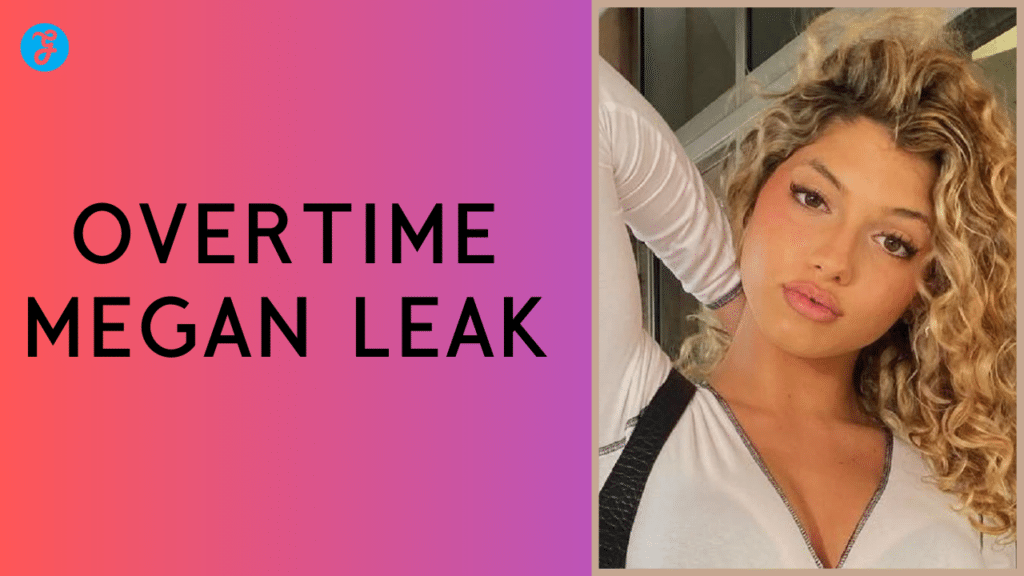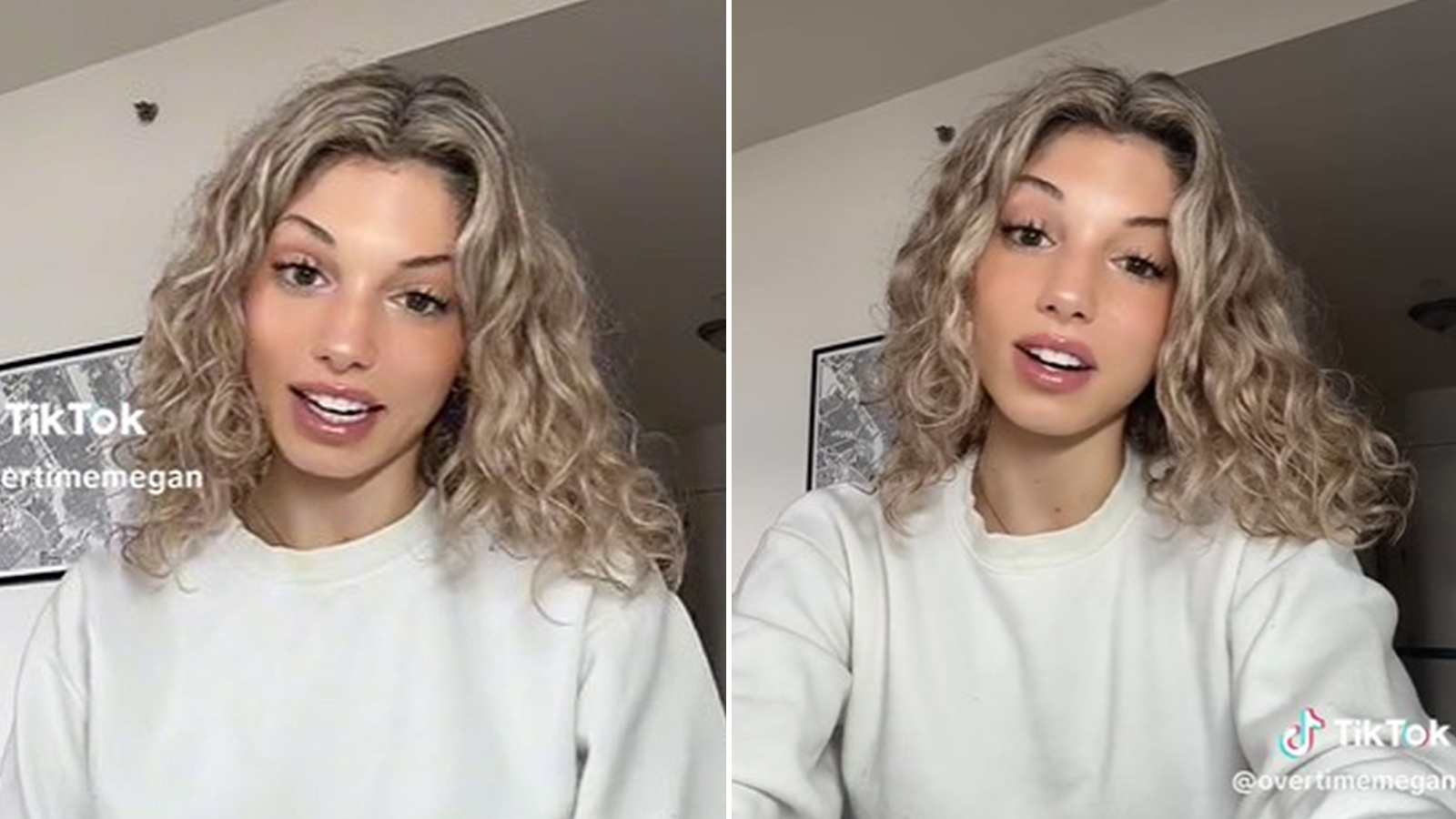Overtime Megan Leaks: Navigating Privacy In The Digital Age
In an era dominated by digital connectivity, the lives of public figures often become subjects of intense scrutiny, with every aspect, both public and private, potentially exposed to the world. The unfortunate reality of "leaks" has become a recurring theme, highlighting the fragility of personal privacy in the vast expanse of the internet. The term "Overtime Megan leaks" emerged as a prominent example, drawing significant attention and sparking discussions about digital privacy, consent, and the ethical responsibilities of online communities.
This article delves into the complex issues surrounding such incidents, moving beyond the sensationalism to explore the profound implications for individuals, the legal and ethical frameworks that govern online content, and the collective responsibility we share in fostering a safer digital environment. Our aim is to provide a comprehensive understanding of the challenges posed by unauthorized content dissemination and to offer insights into protecting personal boundaries in an increasingly transparent world.
Table of Contents
- Who is Overtime Megan? A Brief Biography
- The Phenomenon of "Overtime Megan Leaks"
- The Dark Side of Digital Exposure: Privacy Violations and Consent
- The Impact on Public Figures and Their Careers
- The Role of Online Communities and Platforms
- Protecting Yourself in the Digital World
Who is Overtime Megan? A Brief Biography
Megan Eugenio, widely known as "Overtime Megan," rose to prominence as an American internet personality, content creator, and social media influencer. Her journey into the digital spotlight began through her engaging presence on various platforms, where she initially gained a following by creating sports-related content, particularly around basketball. Her association with "Overtime," a prominent sports media company, further cemented her online identity, leading to her popular moniker. Over time, her content diversified, encompassing lifestyle, humor, and collaborations with other internet personalities.
Megan’s career trajectory is a testament to the evolving landscape of digital media, where individuals can cultivate significant audiences and build personal brands. Her appeal lies in her relatable persona and consistent engagement with her fanbase. However, like many public figures, her increasing visibility also brought heightened scrutiny and, unfortunately, exposure to the darker aspects of online culture. Despite facing challenges, including the widespread discussion around "Overtime Megan leaks," she has demonstrated resilience, managing to keep her career going and adapt to the ever-changing demands of the digital sphere.
Personal Data and Public Persona
For individuals like Megan Eugenio, the line between public and private life often becomes incredibly blurred. While certain aspects of their lives are intentionally shared to connect with their audience, a significant portion remains private. However, the nature of online fame means that even private details can become subjects of public discussion or, in unfortunate cases, unauthorized dissemination. Understanding this dynamic is crucial when discussing incidents like the "Overtime Megan leaks."
Here’s a brief overview of publicly available information about Megan Eugenio:
| Category | Details |
|---|---|
| Full Name | Megan Eugenio |
| Known For | Internet Personality, Content Creator, Social Media Influencer, Sports Content |
| Associated With | Overtime, Nelk Boys (past collaborations) |
| Primary Platforms | TikTok, Instagram, YouTube (historically) |
| Notable Mentions | Discussions around leaked content, associations with other public figures (e.g., Antonio Brown) |
The information above represents only what is generally known and publicly accessible. It underscores the challenge for public figures in maintaining a semblance of privacy when their lives are constantly under the digital microscope. The very act of being a public figure can inadvertently expose them to risks that most individuals do not face, making incidents like the "Overtime Megan leaks" a stark reminder of these vulnerabilities.
The Phenomenon of "Overtime Megan Leaks"
The phrase "Overtime Megan leaks" became a widely searched and discussed topic across various online communities, signifying the unauthorized dissemination of private content featuring Megan Eugenio. This phenomenon is not unique to Megan; it reflects a broader, troubling trend where private images or videos of public figures, and indeed private citizens, are shared without their consent. The digital landscape, with its interconnected networks and instant sharing capabilities, provides fertile ground for such content to spread rapidly and uncontrollably.
Reports and discussions indicate that content associated with "Megan Eugenio leaked video" or "Overtime Megan leak full video" circulated on platforms ranging from obscure forums to more mainstream social media sites before being taken down. The "Data Kalimat" provided for this article hints at the fragmented nature of this dissemination, mentioning communities like "dferrr," "shting76," and "jcbsbvhdvj" where discussions or links to such content might have appeared. Furthermore, the mention of "erome.com" and "OnlyFans" in the context of these discussions illustrates the diverse online spaces where individuals might seek or encounter such material. The reference to "Antonio Brown" in relation to some of these alleged leaks also suggests the complex web of associations that can become entangled in such incidents.
What's particularly concerning about the "Overtime Megan leaks" is not just the content itself, but the ecosystem that facilitates its spread. Small, often private, online communities, as highlighted by the "smalldiscordservers community" data, can become hubs for sharing and discussing sensitive material. While these communities might start with innocent intentions, the ease of sharing private content within them often leads to severe privacy breaches. The virality of such content means that once it is online, even if it is deemed "not that good" by some, as one comment suggests, it becomes incredibly difficult, if not impossible, to fully erase from the internet. This persistence underscores the long-term impact on the individual whose privacy has been violated.
The Dark Side of Digital Exposure: Privacy Violations and Consent
At the heart of every "leak" incident, including the "Overtime Megan leaks," lies a fundamental violation of privacy and a profound disregard for consent. In an ideal world, personal content, whether intimate or simply private, remains within the confines of the individuals who created or were intended to view it. When such content is shared without explicit, informed consent, it constitutes a severe breach of trust and often, a criminal act. This act of non-consensual sharing, sometimes referred to as "revenge porn," can have devastating psychological, social, and professional consequences for the victim.
The digital age has amplified this vulnerability. A single click can disseminate private images or videos to thousands, or even millions, of people globally. This rapid spread means that the victim loses control over their own narrative and image, often facing public humiliation, cyberbullying, and reputational damage that can last for years. The emotional toll can be immense, leading to anxiety, depression, and a profound sense of violation. It's crucial to remember that behind every search query for "Overtime Megan leaks" or similar content, there is a real person whose boundaries have been transgressed and whose well-being has been jeopardized.
The concept of consent is paramount here. Consent must be freely given, specific, informed, and unambiguous. If content was created or shared in a private context, the consent for that specific context does not extend to public dissemination. The idea that someone "asked for it" by creating or sharing private content, even with a trusted individual, is a harmful and incorrect notion that shifts blame from the perpetrator to the victim. This victim-blaming culture perpetuates the problem and makes it harder for individuals to come forward and seek justice or support.
The Legal and Ethical Landscape of Leaked Content
The unauthorized sharing of private, intimate images or videos is increasingly recognized as a serious crime in many jurisdictions worldwide. Laws addressing "non-consensual pornography" or "revenge porn" have been enacted in numerous countries and states, making it illegal to distribute such content. These laws aim to protect victims and hold perpetrators accountable, often carrying severe penalties including fines and imprisonment. Additionally, copyright laws can sometimes be invoked, as the individual who created the content (or is depicted in it) may hold copyright over it, making unauthorized distribution a copyright infringement.
Beyond legal frameworks, the ethical implications are equally significant. From an ethical standpoint, sharing or even viewing "Overtime Megan leaks" or any similar unauthorized content contributes to the harm inflicted upon the individual. It normalizes the violation of privacy and participates in a culture that dehumanizes victims. Major online platforms, including social media sites, video-sharing platforms, and messaging apps, generally have strict policies against the sharing of non-consensual intimate imagery. They are often legally and ethically obligated to remove such content once it is reported. However, the sheer volume of content and the speed of dissemination make enforcement a constant challenge.
The "right to be forgotten" is another emerging concept in digital ethics and law, particularly in Europe, which argues that individuals should have the right to request the removal of certain personal information from internet search results and databases, especially if it is outdated, irrelevant, or harmful. While not universally applied, it reflects a growing societal recognition of the need to provide individuals with more control over their digital footprint and to mitigate the long-term consequences of online exposure.
The Impact on Public Figures and Their Careers
For public figures like Overtime Megan, incidents involving leaked content can have a profound and often lasting impact on their careers and public image. While some might assume that any publicity is good publicity, the reality of privacy violations is far more damaging. Such incidents can lead to a loss of endorsements, damage to professional relationships, and a significant decline in public trust. The initial shock and public scrutiny can be overwhelming, forcing individuals to navigate a highly sensitive situation under intense public gaze.
However, the case of Megan Eugenio also highlights a nuanced aspect: resilience. Despite the widespread attention given to "Overtime Megan leaks," she has managed to sustain her career. As the data suggests, "But Megan did keep her career going after all her" challenges. This resilience can be attributed to various factors, including a strong support system, a loyal fanbase, effective crisis management, and perhaps a societal shift where such incidents, while still condemned, do not necessarily spell the absolute end of a public career. Yet, it's crucial to acknowledge that this path is incredibly difficult and not every victim of unauthorized content sharing is able to recover their public standing or personal well-being so effectively.
Moreover, these incidents often expose the double standards prevalent in public perception, particularly concerning women. Female public figures who are victims of leaks frequently face disproportionate blame and judgment compared to their male counterparts. This societal bias adds another layer of complexity and harm to an already traumatic experience, making it harder for them to move past the incident and rebuild their professional lives. The long-term shadow cast by leaked content can affect future opportunities, personal relationships, and overall mental health, underscoring the severe and enduring consequences of such privacy breaches.
The Role of Online Communities and Platforms
The spread of content like the "Overtime Megan leaks" is intrinsically linked to the dynamics of online communities and the platforms they inhabit. As noted in the provided data, phrases like "1 subscriber in the dferrr community" or "886 subscribers in the smalldiscordservers community" point to the existence of niche groups, often on platforms like Discord, Reddit, or other forums, where sensitive content might be shared. These communities, whether large or small, can become echo chambers where the ethical implications of sharing private material are downplayed or ignored, leading to rapid dissemination.
Platforms themselves bear a significant responsibility. While many have policies against non-consensual intimate imagery, the sheer volume of user-generated content makes proactive moderation incredibly challenging. The speed at which content can go viral means that by the time a platform identifies and removes it, it may have already been downloaded, re-uploaded, and shared across countless other sites. This "whack-a-mole" problem highlights the need for more robust preventative measures, faster response times, and stronger collaboration between platforms and law enforcement agencies.
The anonymity offered by some platforms can also embolden individuals to engage in harmful behaviors, as they feel shielded from accountability. This environment can foster a culture where privacy violations are not only tolerated but actively sought out. The data mentioning "jellybeanbrains onlyfans" or "minyak telon latest news" in connection with discussions about "Overtime Megan leaks" further illustrates how various search terms and platforms can become inadvertently associated with the search for or discussion of unauthorized content, even if the platforms themselves are not designed for such purposes.
Combating the Spread: Reporting and Support
Combating the spread of non-consensual content requires a multi-faceted approach involving individual action, platform responsibility, and legal intervention. For victims of "Overtime Megan leaks" or similar incidents, the immediate priority is often to have the content removed. Most major platforms have clear reporting mechanisms for non-consensual intimate imagery. Users can and should utilize these tools to flag such content, prompting platforms to review and remove it. Legal avenues, including cease and desist letters or direct engagement with law enforcement, are also critical steps for victims seeking justice and content removal.
Beyond removal, supporting victims is paramount. Organizations dedicated to fighting online harassment and non-consensual content offer vital resources, including legal advice, psychological support, and technical assistance in navigating content removal. These support networks help victims cope with the emotional trauma and empower them to regain control over their digital footprint. Crucially, every individual has a role to play in combating the spread: by refusing to search for, view, download, or share unauthorized content, we collectively reduce its virality and diminish the demand that fuels its existence. Promoting awareness about the severe harm caused by such actions is a fundamental step towards a more responsible online community.
Protecting Yourself in the Digital World
While incidents like the "Overtime Megan leaks" often involve public figures, the lessons learned about digital privacy and security apply to everyone. In an increasingly interconnected world, proactive measures are essential to safeguard your personal information and maintain control over your digital identity. Understanding and implementing strong privacy practices can significantly reduce your vulnerability to unauthorized content sharing and other forms of digital harm.
Here are some crucial steps individuals can take:
- Be Mindful of What You Share: Think critically before sharing any private or intimate content, even with trusted individuals. Once content leaves your device, you lose control over it. Consider the potential consequences if it were to fall into the wrong hands.
- Understand Privacy Settings: Familiarize yourself with the privacy settings on all your social media accounts, messaging apps, and other online platforms. Configure them to restrict who can see your content, photos, and personal information. Regularly review these settings as platforms often update them.
- Use Strong, Unique Passwords and Two-Factor Authentication (2FA): A strong, unique password for each online account, combined with 2FA, is your first line of defense against unauthorized access. This makes it significantly harder for malicious actors to compromise your accounts, even if they obtain your password.
- Be Wary of Phishing and Scams: Cybercriminals often use phishing emails or deceptive messages to trick individuals into revealing sensitive information. Be skeptical of unsolicited links or requests for personal data.
- Regularly Monitor Your Online Presence: Occasionally search for your own name online to see what information is publicly available about you. This can help you identify and address any unauthorized content or misinformation.
- Educate Yourself and Others: Stay informed about the latest online security threats and best practices. Share this knowledge with friends and family, particularly younger individuals, to foster a culture of digital responsibility.
A Call for Digital Empathy and Responsibility
The narrative surrounding "Overtime Megan leaks" and similar incidents is not just about a celebrity's privacy; it's a stark reminder of the broader ethical responsibilities we all carry in the digital realm. Every click, every share, and every search query has an impact. Behind every public figure, there is a human being with feelings, vulnerabilities, and a right to privacy. The internet, while a powerful tool for connection and information, can also be a weapon when wielded without empathy or consideration for others' well-being.
Cultivating digital empathy means pausing to consider the human consequences of our online actions. Before engaging with sensationalized content, ask yourself: Is this content shared with consent? Am I contributing to someone's distress by viewing or sharing this? Promoting responsible online behavior is not just about avoiding legal repercussions; it's about fostering a culture of respect, kindness, and safety. It's about recognizing that the digital world is an extension of our real world, and the same ethical principles should apply. By choosing not to participate in the spread of unauthorized content and by advocating for stronger privacy protections, we can collectively work towards a more humane and secure online environment for everyone.
Conclusion
The phenomenon of "Overtime Megan leaks" serves as a powerful case study in the ongoing battle for digital privacy in an increasingly public world. It underscores the severe impact that unauthorized content dissemination can have on individuals, highlighting the crucial need for robust legal protections, diligent platform enforcement, and, most importantly, a collective commitment to ethical online behavior. While public figures navigate unique challenges, the principles of consent and privacy are universal, extending to every internet user.
As we move forward, it is imperative that we prioritize digital literacy and empathy. By understanding the risks, protecting our own online presence, and refusing to participate in the spread of non-consensual content, we can contribute to a safer and more respectful digital landscape. Let this incident be a catalyst for greater awareness and responsibility. We encourage you to reflect on your own online habits, prioritize digital safety, and share this article to help foster a more secure and compassionate online community for all.

Overtime Megan Leaks: The Mystery Surrounding TikTok Star

Overtime Megan Leak: A Rising Star's Journey to an End

True Facts Behind Overtime Megan Leaks - Husband Info